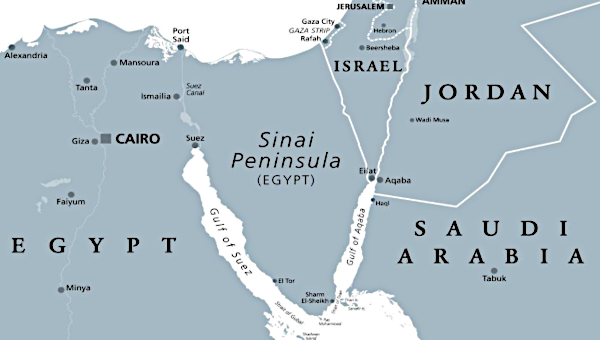Obama’s Cairo Speech
Barack Obama’s speech in Cairo on the 4th of June 2009 definitely lived up to expectations – provided we agree on what could have been expected.
With regard to the form, Obama fully lived up to his role as the new black and human face of America in its relation with the rest of the world in general, and with the Muslim world in particular. He respected the specifications of his mission, seeking to repair the huge damage caused to America’s image and “soft power” by the previous administration of George W. Bush. The world witnessed a spectacular attempt at seducing the Muslim world – its youth in particular.
The president’s assets were intensively used: the colour of his skin, his Muslim paternal background, his early opposition to the invasion of Iraq and, last but not least, his Rooseveltian posture suited to our times of global economic crisis. The speech was very obviously inspired from FDR’s famous “Four Freedoms” speech of the 6th of June 1941: the language of peace and disarmament, i.e. freedom from fear; freedom of thought; and religious freedom. Only Roosevelt’s “freedom from want” was missing, a testimony to the extent to which this concept is embarrassing for governments that are temporarily resorting to “Keynesian” tools only in order to rescue the neoliberal economic system.
This being said, the difference with the Bush-Cheney administration was not only one of style and tone. The difference in substance too was blatant, despite preconceived hostile assertions that it was pretty much the same discourse and that, although the new president is black, the White House is still… white. The key substantive differences could be summarized as follows: a criticism of the U.S. invasion of Iraq; a commitment to withdraw all troops from that country; an acknowledgement of the Palestinian people’s more than sixty-year old tragedy (implicitly recognizing the Nakba); a clear and firm rejection of Israel’s expansion of its settlements in the occupied West Bank; a relatively open attitude toward Hamas; an acknowledgment of Iran’s right to develop nuclear energy within the boundaries of the Nuclear Non-Proliferation Treaty; and a willingness to talk to the Iranian government, without preconditions.
These are important substantive differences, although they represent no dramatic break with the longer perspective of U.S. foreign policy. The truth is that it is the Bush-Cheney administration that represented a discontinuity with the long tradition: Obama’s attitude is actually much closer to that of Bush senior than was that of the latter’s own son. The commitment to settle the Israeli-Arab conflict, as a major source of harm to U.S. strategic interests, and the willingness to exert pressure on Israel to that end, were already displayed by the Bush senior administration. And the openness to Tehran (and Damascus) was clearly advocated by the bipartisan Baker-Hamilton Iraq Study Group in 2006, although the Bush administration refused to follow this part of its recommendations.
The rest is hardly new, even when compared to the record of the previous president: the advocacy of a “two-state solution” for the Israeli-Palestinian conflict, and – despite all false impressions – the discourse about Islam, democracy, etc. People tend to confuse the neoconservative discourse with that of the Bush-Cheney, and for that matter Rice, administration: they were different. George W. Bush could outbid anybody in his “respect” for Islam – and, to be sure, in his close friendship with the Saudi dynasty! And, needless to say, Barack Obama will ultimately be judged for his deeds and not, or not only, for his words.
Beyond these differences and convergences, nothing else could be expected from Obama’s speech, if one adhered to a sober assessment of what he and his administration represent. Not the leftward shift in domestic and foreign policies brought with the election of Franklin D. Roosevelt (FDR) in 1932 on the crest of a wave of social radicalization, but a return to the centre after eight years of dramatic shift of the White House to the far right of the mainstream political spectrum, and a return to the fundamentals of bipartisan consensus in U.S. foreign policy.
On one point however, one could have expected better from Barack Obama than what he delivered: His speech was lamentably constrained within the parameters of the “clash of civilizations” paradigm – whose main theoretician, the late Samuel Huntington, did not advocate the clash, as his non-readers believe, but warned of it. The paradigm was one of a world divided into blocs, the majority of which are constituted around a single religious criterion. Thus, Obama in Cairo exclusively addressed the “Muslims,” scattering his speech with quotes from the Koran, expressing a view of the world dominated by religion – and only Abrahamic religions at that, forgetting that in his own country there are millions who do not belong to any of Christianity, Judaism or Islam, not to mention those who refuse to belong to any religion at all. In doing so, he paid an unintended tribute to the man whom he mentioned at the beginning of his speech and built up as its main target: Osama bin Laden. •
A translation of this article is published in the June 5, 2009 edition of the Italian daily Il Manifesto.





